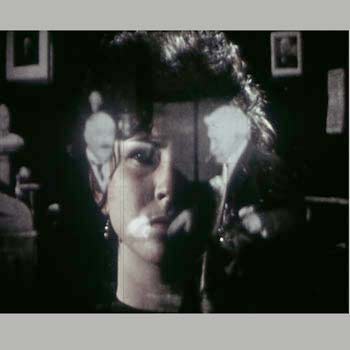From the February 25, 1994 Chicago Reader. It seems that a good many colleagues have ranked this film higher in Mike Leigh’s oeuvre than I did at the time; perhaps today I’d agree with them. — J.R.

*** NAKED
(A must-see)
Directed and written by Mike Leigh
With David Thewlis, Lesley Sharp, Katrin Cartlidge, Gregg Cruttwell, Claire Skinner, Peter Wight, Deborah Maclaren, and Gina McKee.
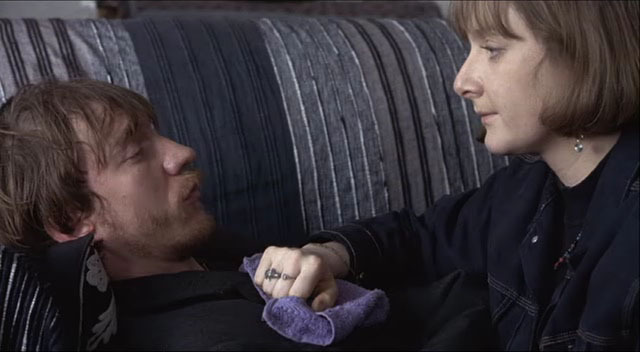
Mike Leigh’s virtuosity as a writer-director and the raw theatrical power of David Thewlis, his lead actor, combine with the sheer unpleasantness of much of Naked to make it a disturbingly ambiguous experience. The apocalyptic, end-of-the-millennium rage of Thewlis’s Johnny — an articulate, grungy working-class lout on the dole who abuses women and spews negativity — registers at times as Leigh’s commentary on the bleak harvest of Thatcherism. But at other times it registers as the ravings of a malcontent too frustrated and paralyzed to even know what he wants. Sorting out the intelligence from the hysteria is no easy matter, and the picture rubs our noses in this uncertainty so remorselessly that we sometimes forget that what we’re watching is largely a comedy.

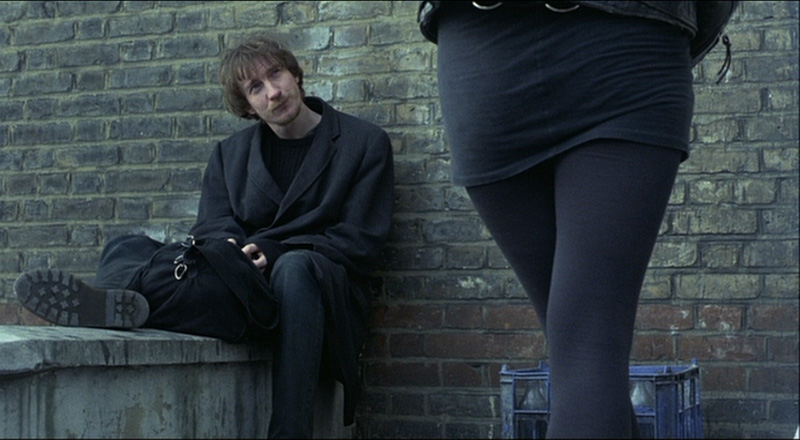
The first glimpse we get of Johnny, he’s having some very rough sex with a nameless woman in a Manchester alley. Read more
From Monthly Film Bulletin, November 1974 (Vol. 41, No. 490). — J.R.
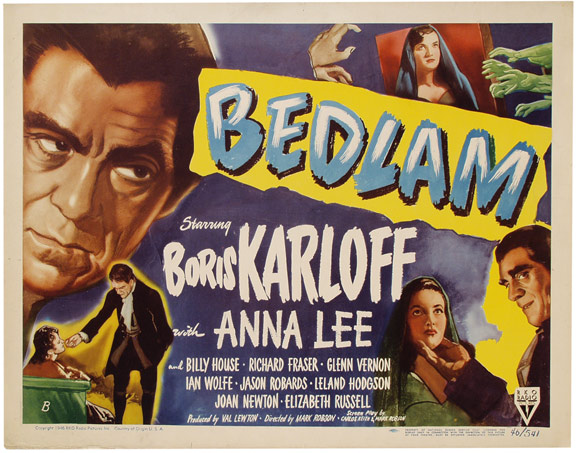
Bedlam
U.S.A., 1946 Director: Mark Robson
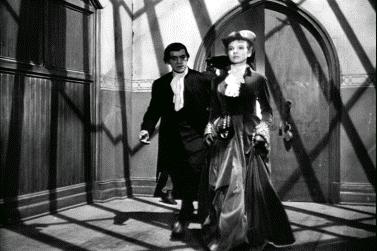
London, 1761. Attempting to escape from the St. Mary of Bethlehem lunatic asylum, commonly known as Bedlam, a poet named Colby is forced by Sims, the apothecary general in charge, to drop from a railing, and he falls to his death. Lord Mortimer and his ‘protégée’ Nell Bowen, passing by in a carriage, question Sims about the incident, and are assured it was an accident. After subsequently paying a visit to the asylum, Nell is appalled by the living conditions and Sims’ sadistic treatment of the inmates, and appeals to Lord Mortimer to make a charitable donation. But Sims dissuades the latter from doing so. When Nell joins forces with John Wilkes to turn the cause into a political issue, Sims contrives to have her declared insane and committed to Bedlam. Frightened for her safety — and securing a trowel from Hannay, a sympathetic Quaker brickmason, for protection — she none the less elicits the respect and loyalty of the other inmates, and when Sims locks her in a cage with a supposedly dangerous lunatic, she successfully placates her cellmate. Read more
From Monthly Film Bulletin, December 1974 (Vol. 41, No. 491).
I must admit that the hyperbole of the last couple of sentences here embarrasses me now. But readers can judge for themselves, because this first feature by Laura Mulvey and Peter Wollen has recently become available as an extra on the BFI DVD of Riddles of the Sphinx. –- J.R.
Great Britain, 1974 Directors: Laura Mulvey, Peter Wollen
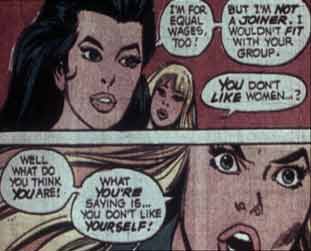
The film is composed of five sequences, each preceded by a quotation. 1: “Ghost white like a not yet written page” (Mallarmé, “Mimique” ): A mime of Kleist’s Penthesilea, filmed in long shot from a fixed camera position. 2: “The shadows sprinkled in black characters” (Mallarmé, “Quant au livre”): A lecture on Kleist’s play, the myth of Penthesilea and the theoretical basis of the film, delivered by Peter Wollen while moving about a terrace and adjoining living room, the camera tracing an independent trajectory within the same confined space and occasionally approaching the index cards of notes left behind by Wollen at various stages in his route. 3: “Blazons of phobia, seals of self-punishment” (Lacan, after Vico): A succession of images relating to Penthesilea and the Amazons — paintings, sculptures, artifacts, tapestries, etc., Read more







